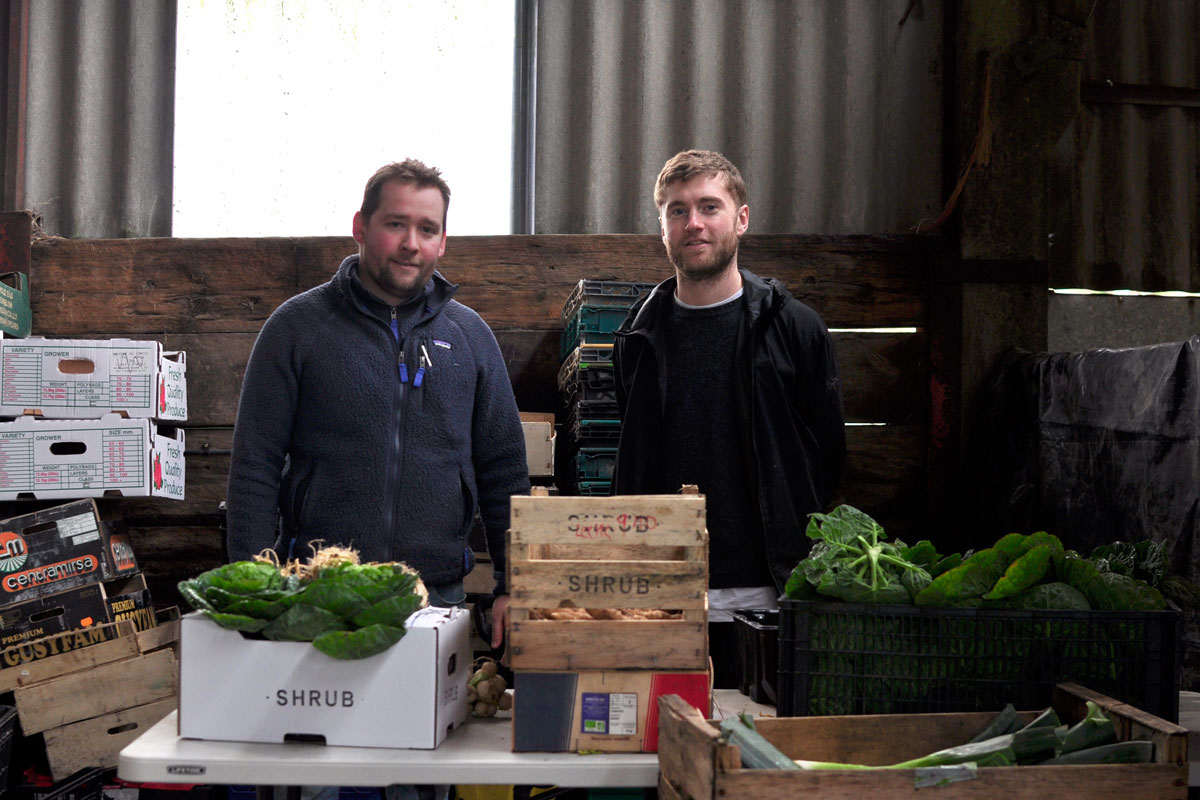 Andrew Martin
Andrew Martin

Roots to Work: The Greener-Grocers
Not a pair likely to let a pandemic stand in their way, Rob Slater chatted to Shrub Provisions cofounders and veg-fighting duo Harry Dyer and Sam Best about starting up when restaurants were closing down and supplying London with produce from the finest agroecological growers around.
What got you into the food and farming sector?
We both grew up in rural areas, in Oxfordshire and West Berkshire, having wonderful home cooked meals every night with our large (by today’s standards) families. This instilled a love of the outdoors, countryside and food from a very young age. We share these values and both naturally fell into the food and farming sector.
What led you to set up Shrub?
It wasn’t only a business decision, but an environmental one. There is a lot of greenwashing in the industry and we felt that there were truths not being told and good marketing put ahead of good practice. We wanted to provide a truly transparent, educational food chain.
What’s a typical day for you – if there is one?
Since starting Shrub we have had to wear multiple hats, as any startups must. Each week follows a process and rhythm, of talking to chefs and farmers in equal parts, sourcing, purchasing, driving, collecting, delivering, admin and squeezing in some sleep where we can!
Why focus on the London restaurant trade?
It made logistical, financial and strategic sense to focus on London. It’s a mecca for innovative, progressive and ethical restaurants that are actively seeking to improve sustainability and traceability. Even during a pandemic we were able to sustain ourselves. We feel that if we can make a real, tangible difference to the way restaurants source their fruit and veg, London is the place to do that.
Have you noticed any change in how people engage with food production in recent years?
As a whole yes, but particularly during the pandemic. Everyone was forced into their kitchens and this really made people think about where their food comes from. Organic box schemes and direct farmgate sales skyrocketed. This is a great sign. We do not exclusively work with certified farms, as ultimately we believe the new and fashionable colloquialism of ‘regenerative’ should be the end result of all agricultural practices going forward. Our ambition is to expedite and facilitate this change.
What changes would you like to see in the way that food is produced in the UK?
Invert where incentives to innovate are placed. We should encourage highly productive land use – this is entirely achievable following restorative methods. Our metric for success should not be measured simply by high output and low cost to the end consumer.
This feature first appeared in The Jellied Eel magazine issue 63, May 2021
Check out our recent Roots to Work with Danielle the urban grower
London Food Link: London Food Link brings together community food enterprises and projects that are working to make good food accessible to everyone in London to help create a healthy, sustainable and ethical food system for all.
Sustain
The Green House
244-254 Cambridge Heath Road
London E2 9DA
020 3559 6777
sustain@sustainweb.org
Sustain advocates food and agriculture policies and practices that enhance the health and welfare of people and animals, improve the working and living environment, promote equity and enrich society and culture.
© Sustain 2026
Registered charity (no. 1018643)
Data privacy & cookies
Icons by Icons8